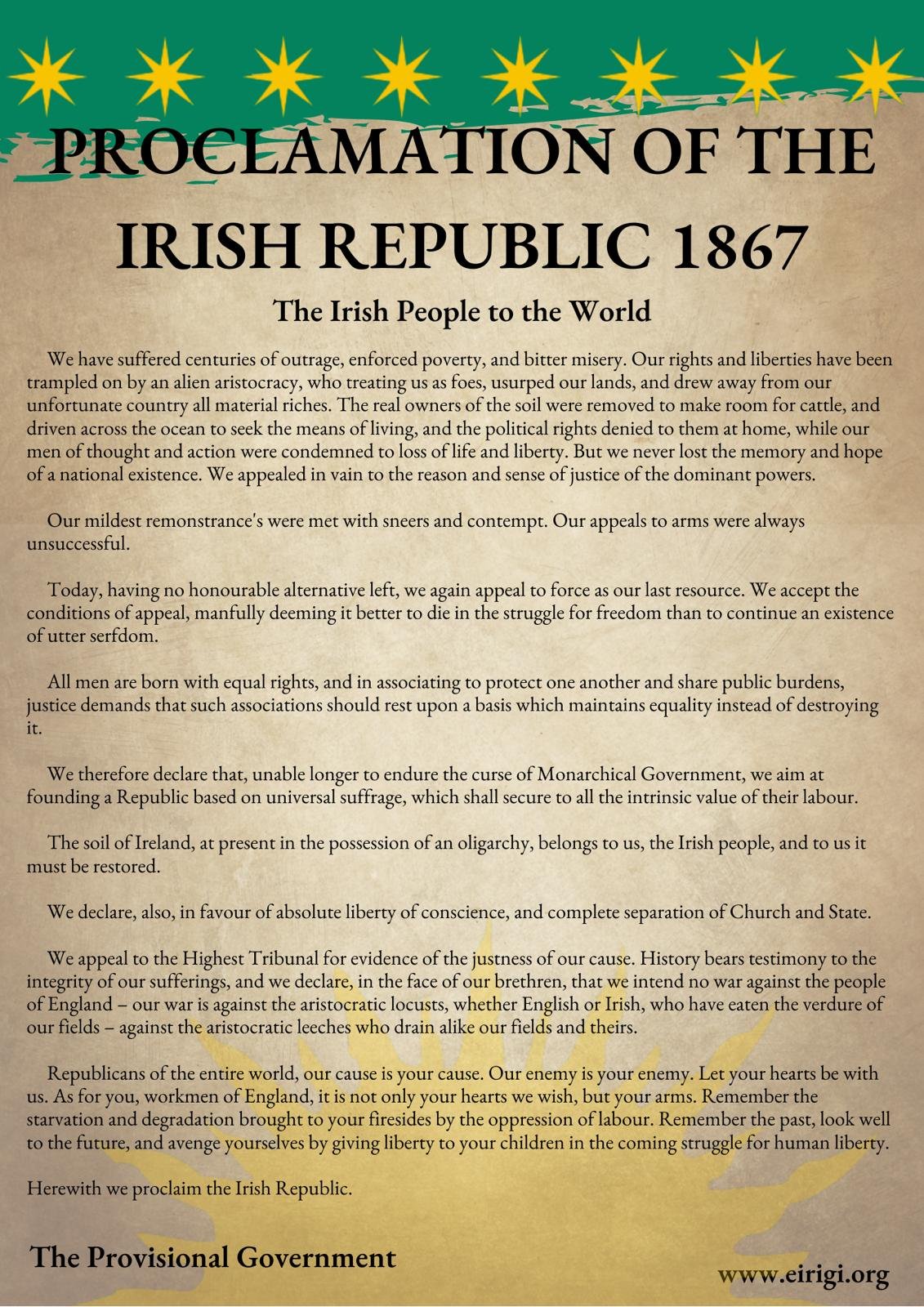Éirígí Tallaght Marks 155th Anniversary Of Fenian Rebel
Yesterday saw Éirígí activists in Tallaght mark the 155th anniversary of the 1867 Fenian Rising. The South Dublin village was the scene of the largest mobilisation and engagement of the entire rising, with up to 8,000 Fenian assembling on Tallaght Hill.
As with previous risings in 1798 and 1848, the British government introduced severe coercive measures that forced the rebels to fight in a state of deep disorganization. The Fenian leadership, which had been operating out of the offices of their Irish People newspaper on Parliament Street in Dublin, were arrested en bloc in 1865.
The following year, 1866, saw mass arrests of Fenians following the Habeus Corpus Suspension Act. Some Fenian Circles (branches) had also been infiltrated by informants who passed details of the planned rising to Dublin Castle.
Kerron Ó Luain at Fenian commemorative plaque in Tallaght
Éirígí Tallaght spokesperson Kerron Ó Luain, spoke at the wreath-laying,
“It was an act of bravery for these Fenians to even converge in Tallaght that snowy March day. They had seen their leadership and many of their comrades already arrested or exiled overseas. And they faced insurmountable odds. The might of the British Empire at the time was unparalleled.
Although they managed to seize a number of police barracks in south County Dublin, several Fenians lost their lives in a clash with the Irish Constabulary at Tallaght. The planned rising in Dublin City never materialized and those out in Tallaght were left rudderless.
The suppression of the rising by the Irish Constabulary, not just in Tallaght, but in other parts of Leinster and Munster where the Fenians rose, earned them the title of “Royal Irish Constabulary” – a fact worth bearing in mind if future attempts are made by the likes of Charlie Flanagan to commemorate that force.”
Ó Luain concluded by noting the relevance of the Fenians today,
‘The 1867 Proclamation, issued in the run-up to the rising, is still of great relevance today. It is arguably the most radical of the Irish republican proclamations and marked a clear departure towards socialist-republicanism.
It spoke about universal suffrage and Irish citizens securing the value of their labour. It called for the soil of Ireland to be returned to the Irish people. These Irish republican and democratic demands are still applicable today over one hundred and fifty years later.
In Tallaght, the land of Ireland is being sold off to vulture funds and REITS, whose only objective is to price gouge ordinary people for rents. Many workers today are still still not paid a wage that will not mean hardship - a far cry from securing the value of their labour.
Although the Fenian Rising ultimately failed on the day, it helped drive a historical process of ordinary citizen activists coming together to free Ireland and to make it a better country to live in. This process is incomplete, but ordinary people can help push it forward by becoming politically active today - by joining Éirígí and the fight for a New Republic.”



